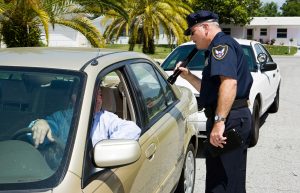For most of us, the only interaction we have with the police is during a traffic stop. Traffic-related situations happen frequently. So it may have crossed your mind at some point to wonder, “When can police search your car?” That is a good question.
If you find yourself on the wrong side of the law, the team at Gibson Bail Bonds is here to help. Our agents are available all day or night to take your call and help ease your situation.
Clear Legal Rights at Home
You have 4th Amendment rights against unlawful searches and seizures. The Constitution offers all Americans those protections.
When it comes to your home and actual person, the rules are quite strict. Unless you give consent, police officers typically must have a warrant that authorizes the search. To get the order, the police have to prove to a judge that there is a valid reason to think someone committed a crime. Further, they have to prove that a search is reasonable in trying to solve that crime.
Warrants generally include parameters that the officers must adhere to as they execute the warrant. For example, the judge may place time restrictions in the order or limit the search to a specific part of a house.

Police officer using flashlight to check the back seat.
The search laws are a bit different for your car. Usually, there is no warrant involved in the search of a vehicle for a couple of reasons.
- Timing – Cars didn’t exist when the founding fathers drafted The Constitution. So the courts had to adjust after the invention of the horseless carriage.
- Mobility – If police suspect a driver is engaging in criminal activity, they don’t have time to wait for a warrant. Due to a car’s mobility, the evidence could disappear before a judge issues an order.
So When Can Police Search Your Car?
Even though police rarely need a warrant to search a car, that does not mean they have free reign. In general, there are four situations in which an officer can execute a search.
- You Are Under Arrest – If the police are placing you under arrest while you are in your car, they can search the vehicle. At that point, the police have the right to also search your bags, purses, or packages in the car. Your arrest voids your 4th Amendment protections.
- Inventory Search – In some situations, the police can search your car to take inventory of what is inside. Ostensibly, this is to protect the police from claims of missing or damaged property. This often happens in DUI arrests.
- Probable Cause – This situation gives the police a lot of leeway in deciding to search your car. Probable cause kicks in if the officer sees a crime in progress or sees evidence of a crime. It also applies if the police see something unsafe, such as a weapon, or if they see or smell evidence of illegal drug use. On their own, routine traffic stops do not give police the right to search your car.
- You Consent – As with your home and person, if you consent, police can search your car. Agreeing to a search could open a can of worms, so most legal experts don’t recommend you do it.
How to Handle a Potential Car Search
If the police ask to search your vehicle, you have the right to refuse. It may be uncomfortable to say “no” to the police, but you do not need to allow the search.
Speak calmly and politely, and be sure you only refuse them verbally. If you touch the officer or make a sudden move, they will have probable cause. If you refuse, but they deem there is probable cause, they may search anyway. Stay calm and stay silent during a search.
Gibson Bail Bonds Is On Your Team
Now you know when police can search your car. But if the worst happens, and you find yourself under arrest, reach out to the Gibson Bail Bonds team. Our agents can help you secure bail so that you can get back home quickly.


